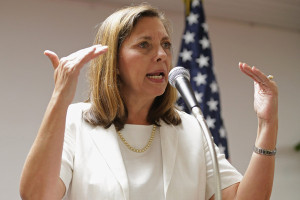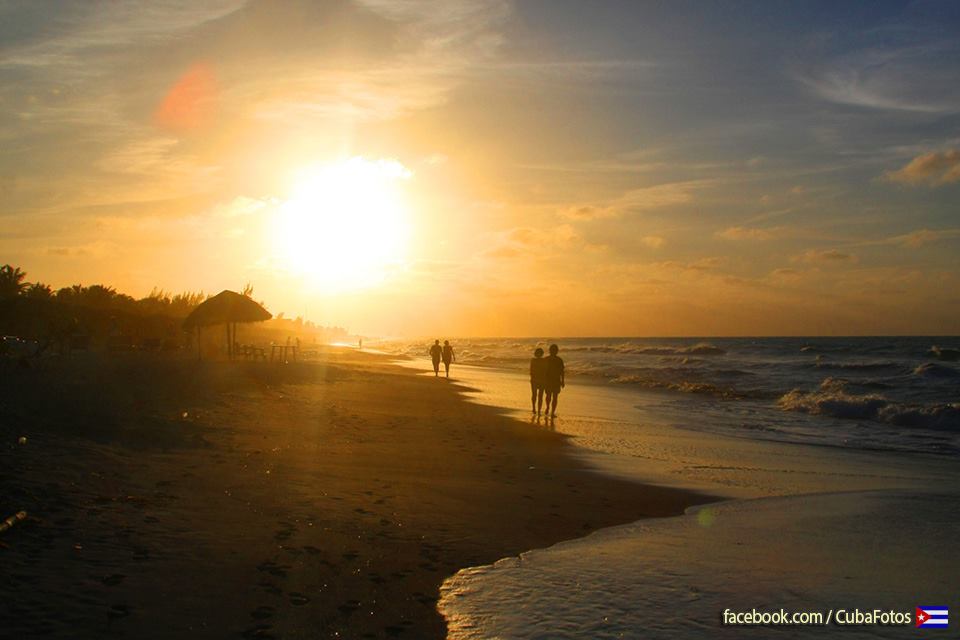 ‘Other than that, everything else, everything that does not undermine the sovereignty of a State, may be part of the process, “he said Josefina Vidal in an interview.
‘Other than that, everything else, everything that does not undermine the sovereignty of a State, may be part of the process, “he said Josefina Vidal in an interview.
Sovereignty and internal order of Cuba “non-negotiable” in the process of restoring relations with the United States, according warned the director for North Foreign Ministry, Josefina Vidal, America in an interview with state television.
“The issues of internal order in Cuba are not negotiable, as are non-negotiable for any other country (…) never put on the table in this negotiation process internal character issues or issues aimed at promoting changes in our internal system “said the Cuban official, according to EFE.
Vidal, who leads the team of Cuban negotiators in dialogue with the US to normalize relations, said, “other than that, everything else, everything that does not undermine the sovereignty of a State, may be part of a negotiation process. ”
The regime, he said, focuses on new and “interesting” stage begun with the United States since the “best available” and “constructive spirit”, although aware of the “challenges”, “difficulties” and “differences” that separate the two countries.
“We are still quite realistic in our approach (…) to try to move as much as possible in solving problems while trying to take advantage of the best possible opportunities that may arise,” said the diplomatic Cuban.
MIDPOINT.
Asked whether optimistic or pessimistic, Josefina Vidal said he was “in the middle”.
“I can not say I am totally optimistic because there are things that are out of my control, not everything can control the Cuban side. They are two countries and the US side there is a government, a Congress, a society, a political context. but I can not say I’m pessimistic it, otherwise we would not have reached the point where we are, “he said.
About the new measures of Washington to partially lift sanctions on Cuba, Vidal believes that going in the right direction, but are reduced if you consider that the US president, Barack Obama, has executive ability “unlimited” to empty the main content of “blocking”, although Congress who finally has the power to “bury” the embargo.
He also indicated that Havana will continue claiming before the UN General Assembly to lock while you keep.
Regarding the expectations generated on the island thaw with the United States, Vidal warned that this is a process where “not everything will be solved in the short term” and recalled that the first phase is the normalization of diplomatic relations that is what is being negotiated at this time.
Within this phase was referred to the US demand to remove restrictions that prevent freedom of movement diplomats on the island and also recalled that Cuban officials who are in Washington have these limitations.
Vidal said that Havana is willing to discuss this freedom of movement, but said US diplomats should change their attitude in supporting and financing “elements within our country that act against the interests of the State, the government and the Cuban people, “referring to internal dissent.
He recalled that the Vienna Convention clearly states that diplomats must respect the laws of the “receiving State” and defended the “flawless” conduct in that sense of Cuban diplomats in Cuba Interests Section in Washington.
Following the restoration of diplomatic ties with the United States would, explained Vidal, the “longer” to the bilateral “normalization” process.
Agencies / DDC / InternetPhotos / www.thecubanhistory.com
The Cuban History, Hollywood.
Arnoldo Varona, Editor.
RELACIONES EEUU-CUBA: RÉGIMEN CONSIDERA “EL ORDENAMIENTO INTERNO” NO NEGOCIABLE.
‘Fuera de eso, todo lo demás, todo lo que no atente contra la soberanía de un Estado, puede formar parte del proceso’, afirmó Josefina Vidal en una entrevista.
La soberanía y ordenamiento interno de Cuba “no son negociables” en el proceso de restablecimiento de relaciones con Estados Unidos, según advirtió la directora para América del Norte de la Cancillería, Josefina Vidal, en una entrevista con la televisión oficial.
“Las cuestiones de orden interno en Cuba no son negociables, como no son negociables para ningún otro país (…) Nunca se pondrán sobre la mesa en este proceso de negociación cuestiones de carácter interno o cuestiones dirigidas a promover cambios en nuestro ordenamiento interno”, dijo la funcionaria cubana, según EFE.
Vidal, que lidera el equipo de los negociadores cubanos en el diálogo con Estados Unidos para la normalización de relaciones, añadió que, “fuera de eso, todo lo demás, todo lo que no atente contra la soberanía de un Estado, puede formar parte de un proceso de negociación”.
El régimen, según dijo, enfoca la nueva e “interesante” etapa iniciada con Estados Unidos desde “la mejor disposición” y con “espíritu constructivo”, aunque consciente de los “retos”, “dificultades” y “diferencias” que separan a ambos países.
“Estamos siendo bastante realistas en nuestro enfoque (…) para tratar de avanzar lo más posible en la solución de los problemas y al mismo tiempo tratar de aprovechar de la mejor manera posible las oportunidades que se nos puedan presentar”, aseveró la diplomática cubana.
PUNTO MEDIO.
Preguntada sobre si es optimista o pesimista, Josefina Vidal se declaró “en el punto medio”.
“No puedo decir que soy optimista total porque hay cosas que se salen de mi control, no todo lo puede controlar la parte cubana. Son dos países y del lado de Estados Unidos hay un Gobierno, un Congreso, una sociedad, un contexto político. Pero tampoco puedo decir que soy pesimista, de lo contrario no habríamos llegado al punto en el que nos encontramos”, manifestó.
Sobre las nuevas medidas de Washington para levantar parcialmente las sanciones a la Isla, Vidal cree que van en la dirección correcta, pero son reducidas si se tiene en cuenta que el presidente de Estados Unidos, Barack Obama, tiene posibilidades ejecutivas “ilimitadas” para vaciar el contenido fundamental del “bloqueo”, aunque es el Congreso quien finalmente tiene la potestad para “sepultar” el embargo.
También indicó que La Habana seguirá reclamando ante la Asamblea de Naciones Unidas el fin del bloqueo mientras se mantenga.
En relación con las expectativas que ha generado en la Isla el deshielo con Estados Unidos, Vidal advirtió que se trata de un proceso donde “no todo va a tener solución en el corto plazo” y recordó que la primera fase es la normalización de relaciones diplomáticas, que es lo que se está negociando en este momento.
Dentro de esa fase se refirió a la demanda de Estados Unidos de eliminar las restricciones que impiden libertad de movimiento a sus diplomáticos en la Isla y recordó que también los funcionarios cubanos que están en Washington tienen esas limitaciones.
Vidal dijo que La Habana está dispuesta a discutir sobre esa libertad de movimiento, pero indicó que los diplomáticos estadounidenses deben cambiar de actitud en cuanto al apoyo y financiación a “elementos dentro de nuestro país que actúan contra los intereses del Estado, el gobierno y el pueblo cubano”, en referencia a la disidencia interna.
Recordó que la Convención de Viena establece claramente que los diplomáticos han de respetar las leyes del “Estado receptor” y defendió la conducta “impecable” en ese sentido de los diplomáticos cubanos que trabajan en la Sección de Intereses de Cuba en Washington.
Tras el restablecimiento de vínculos diplomáticos con Estados Unidos vendría, explicó Vidal, el proceso “más prolongado” hacia la “normalización” bilateral.
Agencies/DDC/InternetPhotos/www.thecubanhistory.com
The Cuban History, Hollywood.
Arnoldo Varna, Editor





